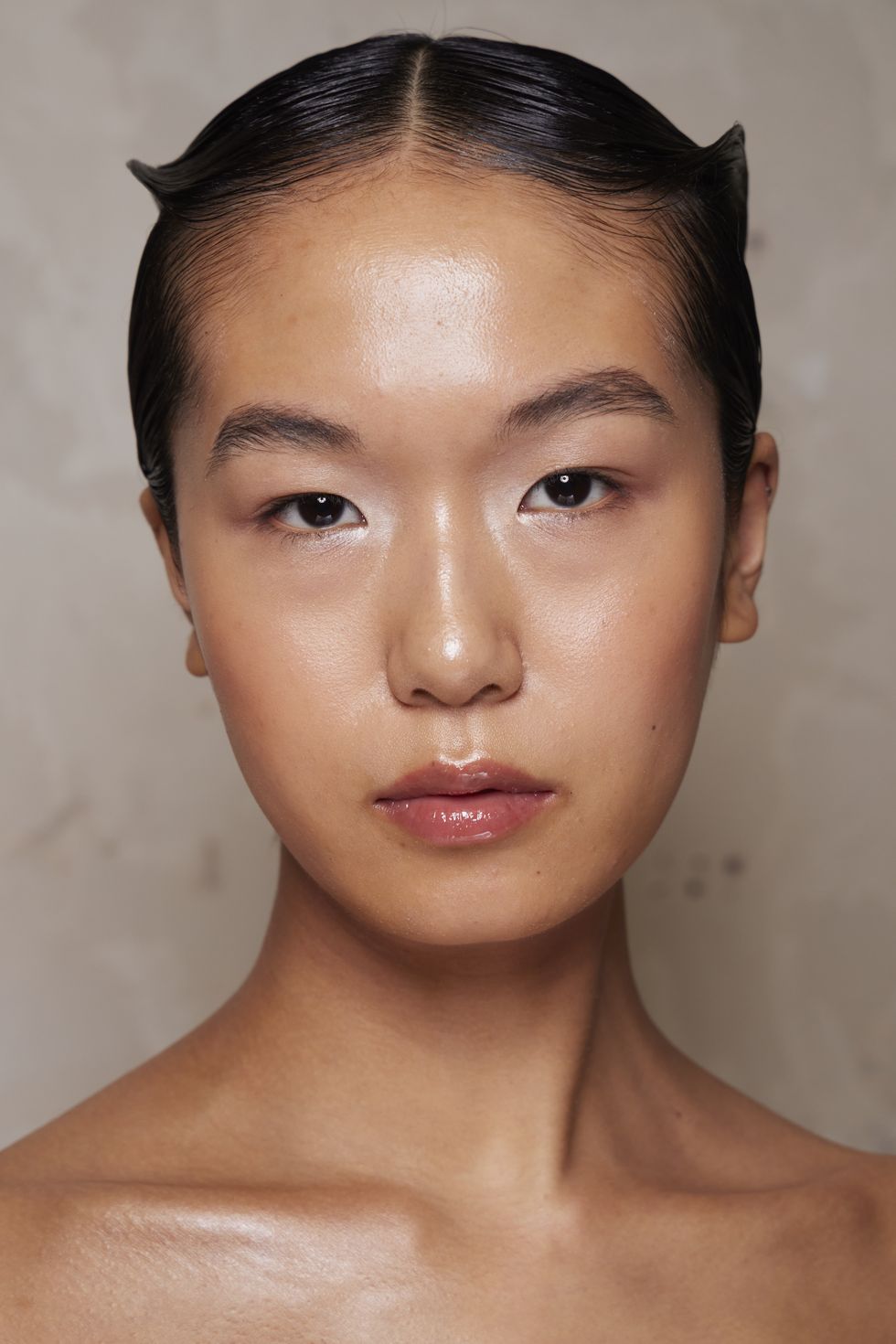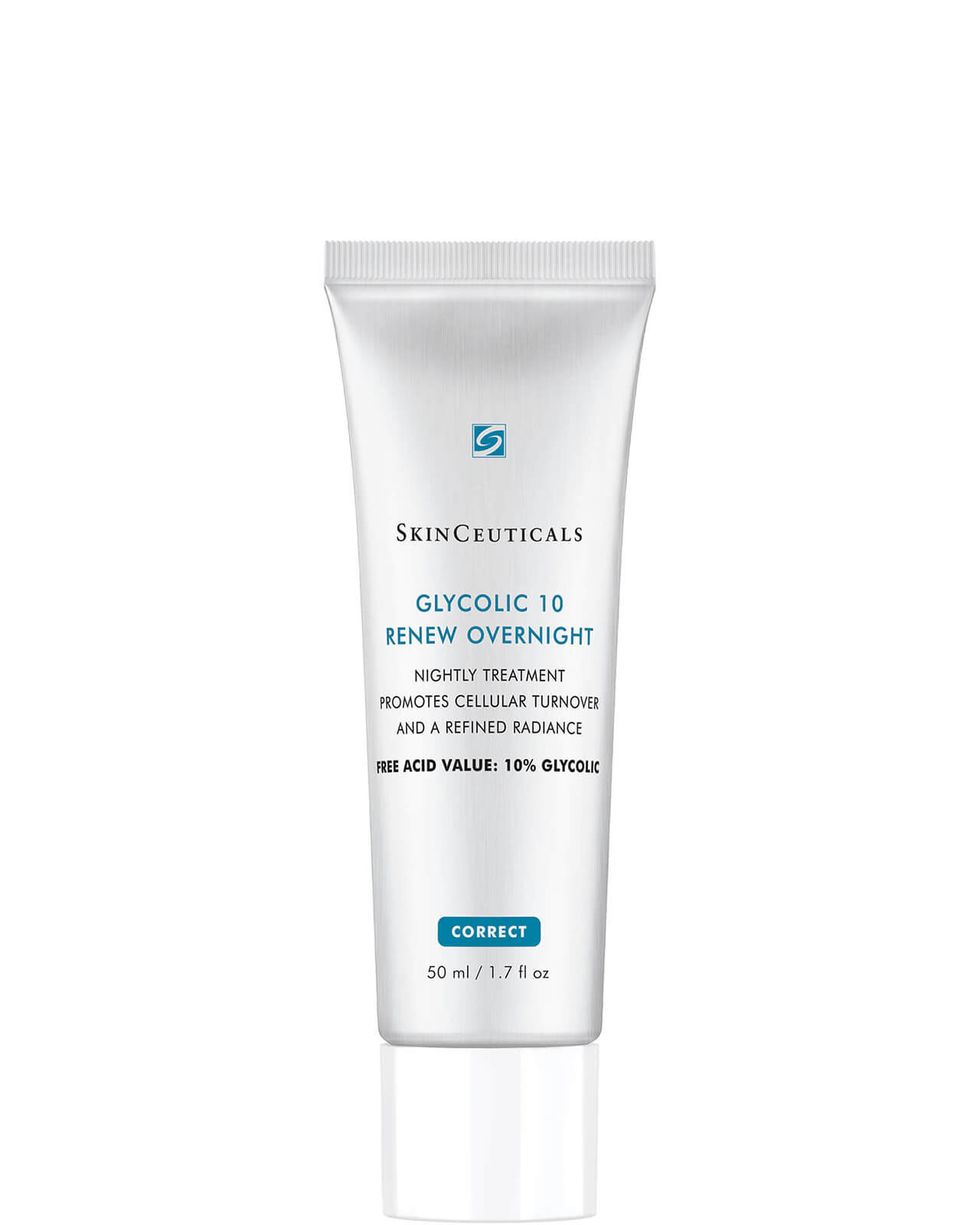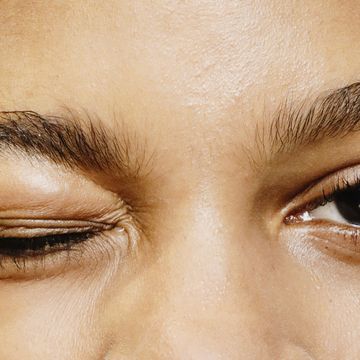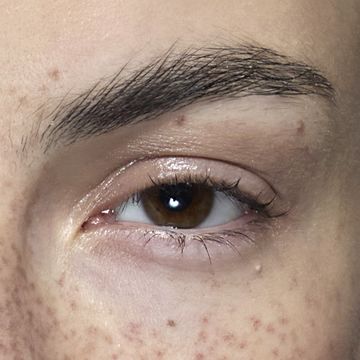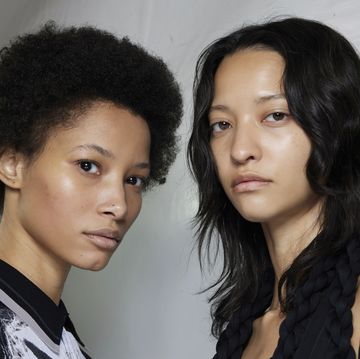We're always up for discovering a new way to get our skin looking as flawless and smooth as a baby dolphin, and glycolic acid could very well be the ticket. We're ditching grainy scrubs and rough masks for a gentler approach in the form of this genius acid exfoliator.
Ok, it's not the newest skincare ingredient out there but it is the gold standard of acids. It can solve almost any skincare problem you throw at it. Spots? Sorted. Dry patches? Gone. Fine lines? Miraculously disappear.
Think of glycolic acid as the 'completed it mate' ingredient for skincare woes. It comes in so many different formulas and strengths there's the perfect pairing whatever your skin type.
What is glycolic acid?
Glycolic acid falls into the family of non-abrasive exfoliators we've all come to know and love. It's an alpha hydroxy acid (AHA) which is derived from natural sugar cane and has become popular for promoting luminosity and reducing pigmentation, without causing irritation.
'Glycolic acid is structural quite small so it easily penetrates the skin which is why it is so effective. It contains properties that help to shed dead skin cells, to reveal the layers of skin beneath which appear bright and reflective. Glycolic acid also promotes collagen production causing to feel firmer and appear line and wrinkle free,' explains Dr Adwoa Danso, NHS GP Doctor.
It can be found in an array of skincare products, from liquid toners to exfoliating masks. The point is, whatever your preference, there's a glycolic acid product out there for you.
What are the benefits of glycolic acid?
Like most acids, glycolic is a skin multitasker. Skincare expert Dr Pamela Benito says: 'The main function of glycolic acid is to exfoliate the skin. By loosening up dead cells and effectively remove the outermost layer of the skin and encouraging cell turnover to promote a more even skin tone.'
It also has has the added bonus of helping to stimulate collagen production, a well-known vital ingredient in the slowing down of ageing. 'By activating fibroblasts in the dermis, the acid will help reduce the appearance of fine lines and wrinkles,' explains Dr Benito.
If you look on the back of a variety of acne serums and anti-spot treatments, you're more than likely to find glycolic acid listed. It's risen to skincare stardom because of its ability to flatten even the most superhuman-looking spots and clear pigmentation.
What skin types can use glycolic acid?
If you're starting to see those first fine lines or find your skin isn't as marble smooth as you want it to be, it's worth incorporating into your routine. You'll see improvement in everything from dullness to hyper-pigmentation.
'It can help with dry skin by transferring water molecules from the air into the skin tissue, replenishing any lost moisture and making it an effective ingredient when used in low strengths,' explains Dr Benito.
Although AHAs can be a god send for most, they're not for everyone. Dermatologist Dr Justine Kluk warns against continuing to use the product if you experience 'stinging, burning or irritation which can happen if you have sensitive skin'. A little tingling is to be expected, regardless of your skin type.
Dr Danso warns 'there are risks of hyperpigmentation but this generally happens if the product is too strong for that individual. Individual with sensitive skin or conditions like psoriasis, rosacea and eczema and allergies should be extremely cautious.'
Who doesn’t need to use glycolic acid?
Acids aren't for everyone and overdoing your exfoliation can make your skin worse, rather than better. So it's worth finding out if glycolic acid just isn't for you. 'This is a quite strong ingredient, unless you know the reason why you are using it and what dose you are using it to get the effect then nobody should be using it,' explains Dr Emma Craythorne, dermatologist and Founder of KLIRA. 'If you are using it for anti-ageing purposes or de-clogging pores you should use low concentrations. High concentrations should really be avoided if you are just trying it for use at home, if you are under the care of a dermatologist and aesthetician then they will typically explain that to you. People who definitely should not use it are people with very sensitive skin or if you have rosacea I would avoid it entirely.'
How often should you use glycolic acid?
If you're not sure if you've got sensitive skin or not then Dr Kluk advises testing the waters first. 'How often you use glycolic acid will depend largely on your skin. If you haven’t used a product containing this ingredient before, start with a wash off product like a face wash.
'For leave-on products, gradually start with two nights a week for the first couple of weeks, then alternate nights, and, eventually, every evening if tolerated.'
Although we obviously already do this... it's doubly important to make sure that you apply SPF every morning once you've started incorporating acids into your skincare routine as skin is more sensitive after use, therefore more likely to burn.
Apply glycolic acid in whatever form suits you best, your skin will thank you for it in the long run.
What should you watch out for with glycolic acid?
As with any skincare acid, it's smart to pay attention to any sign of irritation or side effects of over use. 'Glycolic acid is an alpha hydroxy acid and how that works is it essentially takes off the first few layers of the skin. The problem with it is you have to work out the percentage you’re using it at because very strong percentages might result in hyper pigmentation or it can provoke sensitivity and lead to conditions like rosacea or peri-oral dermatitis,' advises Dr Emma Craythorne.
Is glycolic acid good for acne?
Any ingredient that helps exfoliates dead skin cells is normally incredibly handy to have around when a spot appears. Glycolic acid also has antibacterial properties, which is an added bonus.
However, there are other acids out there, such as salicylic acid and benzoyl peroxide that are slightly more ideal for acne-prone skin.
Can you use glycolic acid with retinol?
Generally, avoiding multiple active ingredients in your skincare routine is advisable to keep your skin barrier happy. So, where does retinol come into the equation if you're also using glycolic acid? 'You can use glycolic acid with retinol, it just depends on what the objective is that you are trying to achieve and the type of skin that you have,' says Dr Emma Craythorne.
'Theoretically, one can use both but the most important thing is understanding what your diagnoses is and what your skin type is and then addressing the problem. If you are looking for anti-ageing, you would be better going for a prescription grade retinoid as it will be far more effective and you can get it done in one step instead of having to use these multi-layered steps where you don’t necessarily understand the dosage.'

